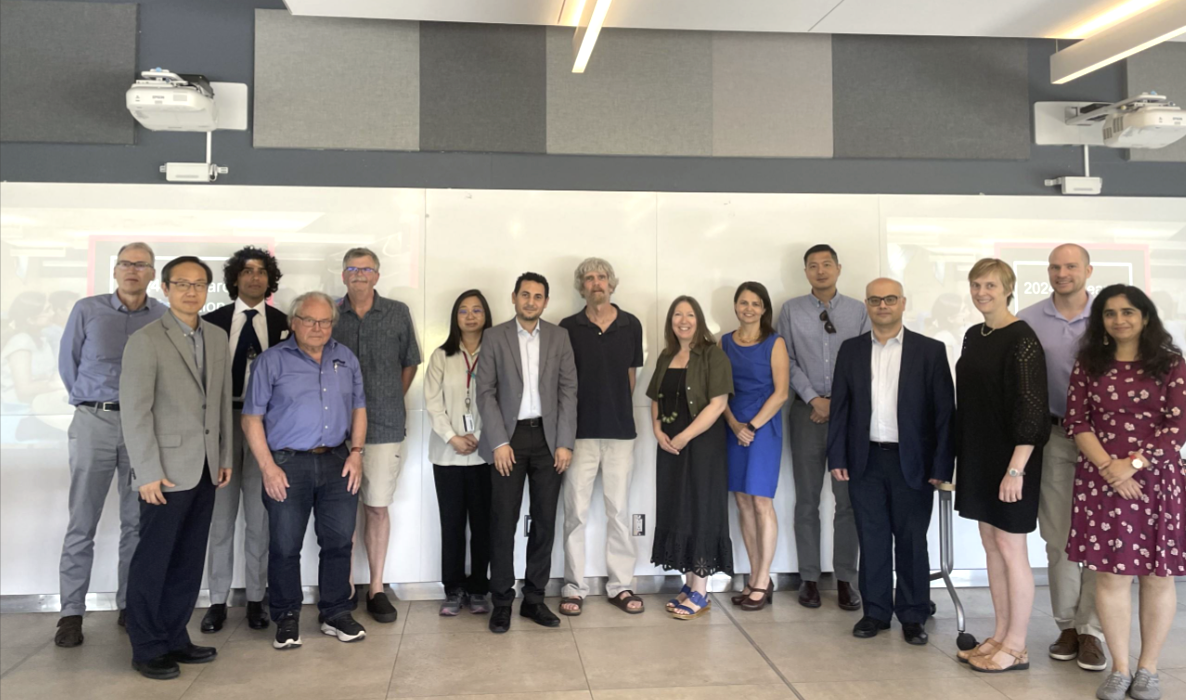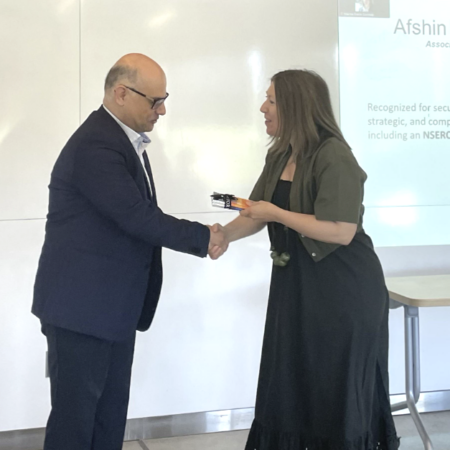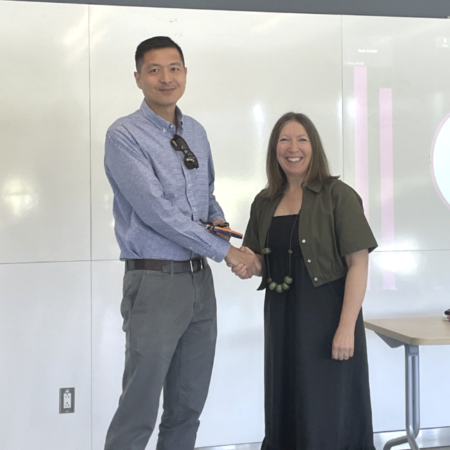Lassonde research recap: Celebrating a year of notable achievements
Tags:

Over the past year, researchers at York University’s Lassonde School of Engineering have developed cutting-edge technologies, delved into groundbreaking theories and impacted communities across the globe.
In late June, many of these researchers were honoured at Lassonde’s annual Research Awards Celebration – an event which highlights outstanding efforts and achievements across areas including research innovation, media engagement, student mentoring and knowledge mobilization.
“Our Research Awards Celebration is an exciting way to highlight the significant accomplishments of our faculty members over the past year,” says Peter Park, associate dean of research innovation, enterprise & partnerships. “Each year, I am blown away by the sheer scope of our faculty members’ teaching and research portfolio. It’s also great to see that the dissemination of new knowledge is not limited to academic papers, but also extends to student teaching and community outreach.”
So, what have Lassonde researchers been up to this past year?
Since 2023, faculty members have published hundreds of academic papers, with many addressing the United Nations’ Sustainable Development Goals (UN SDGs). These efforts help strengthen York University’s standing among the top two percent of universities contributing to the UN SDGs – in fact, publications led by Lassonde researchers addressed all 17 of the goals!
In support of monumental research initiatives, faculty members received dozens of major grants, totaling more than $13 million! Research spanned from innovating space manufacturing to creating technologies for critical mineral detection, with many projects receiving funding from prestigious sources like the Natural Sciences & Engineering Research Council of Canada (NSERC), Ontario Research Fund – Research Excellence (ORF-RE) program and Natural Resources Canada (NRCan).
Research grants are much more than essential financial support, they also represent encouragement and affirmation from notable organizations, serving as a source of motivation and inspiration. Such funding allows researchers to tap into their creativity and work towards solutions for a more just and sustainable world.


Left: Professor Afshin Rezaei-Zare receiving award from Lassonde Dean Jane Goodyer at the Research Awards Celebration. Right: Professor Gene Cheung receiving award from Lassonde Dean Jane Goodyer at the Research Awards Celebration.
In addition, many Lassonde researchers received prominent titles and honours, acknowledging their extraordinary impact and providing opportunities to collaborate with leaders across the globe. These distinctions include the Ontario Professional Engineers Award for Engineering Excellence in Industry, Canadian Society for Mechanical Engineering Solid Mechanics Medal – and two Canadian Academy of Engineering fellowship appointments, among others.
This year has seen numerous groundbreaking initiatives, placing the School at the forefront of progress. For example, Lassonde carved a spot in history by contributing a crucial scientific instrument to NASA’s OSIRIS-REx, the first U.S-led space mission to successfully collect an asteroid sample. The School also launched two CubeSats as part of the Canadian CubeSat Project, allowing student researchers to participate in authentic space missions through experiential learning.
Fostering student growth and learning opportunities remains a key priority for Lassonde, and many faculty members have designed specialized programs to support this objective. In addition to five existing NSERC Collaborative Research and Training Experience (CREATE) programs, a new program was launched to train student researchers to help assess and mitigate the impact of geomagnetic disturbances on technology and society. The program, Geomagnetic Disturbance in Modern Societies and Technological Infrastructures (GMD-MSTI), received more than $1 million in funding to provide students with hands-on learning, leadership and knowledge building opportunities.
Lassonde faculty members have engaged in a range of research initiatives and educational programs, making significant contributions to science and engineering. Their focus on innovation and community impact reflects Lassonde’s dedication to advancing knowledge and preparing future leaders. The achievements over the past year have created momentum, positioning the School for continued progress and contributions at both local and global levels.